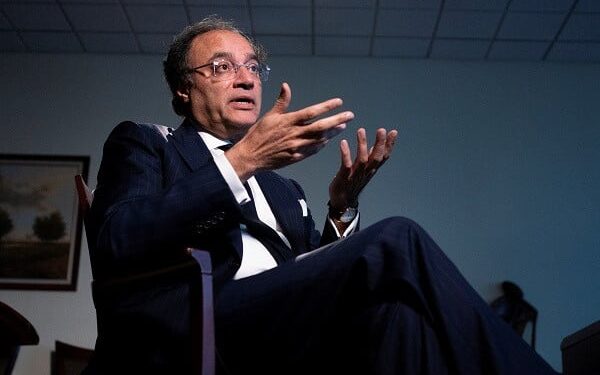Lahore, April 12, 2025 – Federal Finance Minister Senator Muhammad Aurangzeb declared Pakistan’s Information Technology (IT) and mineral sectors as pivotal drivers for economic transformation during a vibrant address at the Lahore Chamber of Commerce and Industry (LCCI). Highlighting the government’s vision under Prime Minister Shahbaz Sharif, Aurangzeb emphasized that these sectors could redefine Pakistan’s economic landscape in the coming years.
Speaking to a gathering of business leaders, the minister underscored the government’s commitment to fostering a business-friendly environment. “We are here to listen and resolve the private sector’s challenges,” he assured, promising to address legitimate demands promptly. Aurangzeb pointed to Pakistan’s untapped mineral wealth, particularly copper reserves, drawing inspiration from Singapore’s USD 22 billion nickel export success. He noted growing global interest in Pakistan’s IT and mineral potential, pledging to remove hurdles for investors.
On the economic front, Aurangzeb highlighted significant progress. “Inflation has dropped from 20.7 percent in March 2024 to 0.7 percent in March 2025, and the interest rate has been slashed from 22 percent to 12 percent,” he said. These measures, he added, aim to lower financing costs and power tariffs while refining taxation policies to boost industrial growth. The minister also announced the removal of restrictions on profit repatriation, a move designed to restore foreign investor confidence.
Addressing taxation concerns, Aurangzeb acknowledged the salaried class’s burden, promising relief through streamlined income tax policies. He revealed plans to privatize 24 national entities and stressed minimizing human interaction in systems to enhance efficiency. “Raising the tax-to-GDP ratio to 13 percent will allow broader sectoral relief,” he noted, emphasizing reduced edible prices to curb exploitation by middlemen.
The LCCI session saw enthusiastic support from industry leaders. LCCI President Mian Abuzar Shad praised the policy rate reduction and the “Uraan Pakistan” initiative, targeting USD 60 billion in exports and one million annual jobs. He highlighted the Special Investment Facilitation Council’s (SIFC) role in bolstering investor trust. Meanwhile, LCCI Vice President Shahid Nazir Chaudhry urged a 10-year economic roadmap and tax incentives for R&D to drive innovation.
The event, attended by Federal Board of Revenue officials and chamber representatives, reflected a unified push for economic revival. With visa issues being prioritized and GSP Plus discussions underway, Pakistan’s private sector appears ready to partner in this transformative journey.

















































